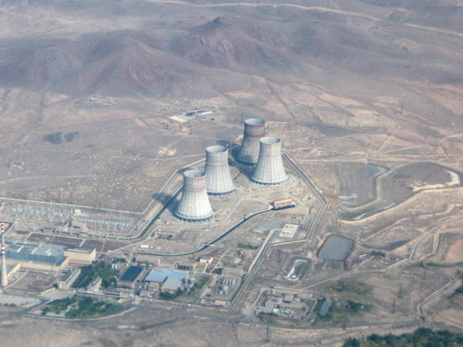Easy target for terrorists: Armenia’s Metsamor nuclear plant

The Metsamor nuclear power plant in Armenia is an easy target for nuclear terrorism and an immense danger in the European neighbourhood.
The recent ISIS attack on Istanbul’s Ataturk Airport hints at an alarming trend in which highly strategic areas are increasingly being targeted by international terrorist groups. A similar attack had taken place at Belgium’s Zaventem Airport a few months before, which revealed that ISIS may have been planning an operation at Belgian atomic plant.
While nuclear terrorism was a remote threat during the 9/11 attacks, with al-Qaeda originally wanting to target nuclear power facilities, it is becoming a dangerously feasible possibility that ISIS followers could launch a successful strike.
One such potential target finds itself at the very borders of the EU: the Metsamor nuclear power plant, in Armenia. The dangers it incurs are multiple: The lack of a cooling mechanism makes the outdated nuclear centre an easy target; the continuous smuggling of radioactive material by jihadists increases the risk of producing a dirty bomb; the uncontrolled zone of the Armenian-occupied territories of Nagorno-Karabakh are used to dump radioactive waste, which could leak or be dispersed as a result of terrorist action.
The big concern is that the plant, built in 1976 with old Soviet technology similar to that of Chernobyl, in a seismically active area, has no cooling mechanism or containment building to prevent radiation from escaping during an accident. Described by the EU as ‘the oldest and least reliable’ reactor and referred as to the ‘world’s most dangerous’ nuclear power plant by National Geographic, the facility was closed following an earthquake in 1988, only to be reopened during the Nagorno-Karabakh War. Until then, the relaunch of a shuttered nuclear station was unprecedented.
On numerous occasions, the EU has called for the ‘earliest possible closure’ of the nuclear centre, which completed its life span in 2010. The 2012 Country Progress Report for Armenia under the ENP Programme highlighted that the facility ‘cannot be upgraded to meet the internationally recognized nuclear safety standard’.
Yet, Armenia refused the EU’s offer of €200 million to finance Metsamor’s closure in order to avoid energy shortages, as the power plant accounts for 40% of Armenia’s electricity supplies.
Moreover, it was recently announced that the operation of the plant would be extended until 2026, although Armenia was planning to decommission the centre in 2016. This would mean that it would continue to be a potential target for terrorists and to pose a threat for the South Caucasus for another 10 years.
The fact that ISIS seeks to find supplies in order to obtain enriched uranium or to produce dirty bombs from radioactive waste or byproducts also prompts worries. It is increasingly reported that uranium and other radioactive material is being smuggled from Armenia because of the lack of control. In April 2016, alarm bells were ringing, when Armenian and Georgian smugglers were arrested for attempting to sell $200 million worth of Uranium-238.
Last but not least, the nuclear waste in the uncontrolled zone of Nagorno-Karabakh and its seven surrounding regions, occupied by Armenian military forces, causes serious danger for the South Caucasus region and beyond. It is estimated that there are 29 radiation centres in the occupied territories, where radioactive waste from Metsamor nuclear power station is being buried. Apart from its disastrous effects for the environment, their leakage or dispersal by terrorist action would be devastating not only for Armenia, but for the entire region.
During the Nuclear Security Summit at the end of March 2016, more than 50 world leaders gathered in Washington in order to reduce the menace of dangerous nuclear material falling into the wrong hands but they failed to deliver tangible solutions for the South Caucasus region, which is in close proximity to terrorist groups in the Middle East.
The EU took timely action to ensure the dismantlement of the nuclear installations in Bulgaria and Slovakia before these two countries joined the Union. Similar action is needed in the European neighbourhood to stop the time bomb called Metsamor, which constitutes an easy target for ISIS militants. The region could not afford a second Chernobyl by non-state actors. Hence, the EU must take immediate measures to eliminate the risk that such a strategically sensitive and dangerous facility falls into the wrong hands.
Eli Hadzhieva is Director and founder of Dialogue for Europe, a Brussels-based NGO. She previously served in the European Parliament and in OCDE.














